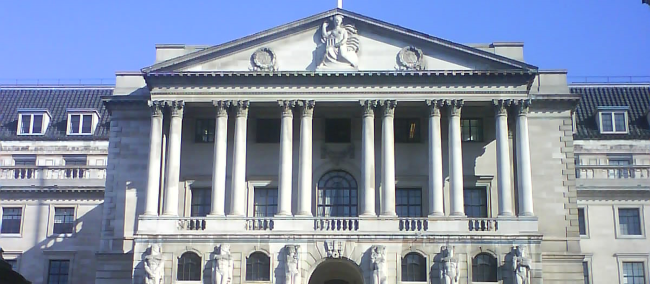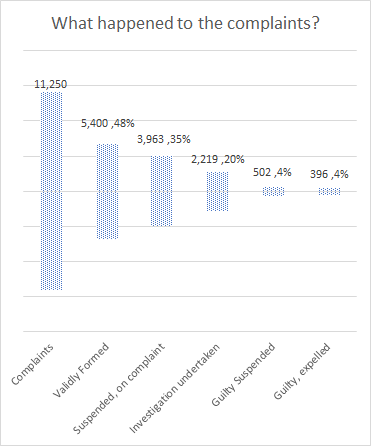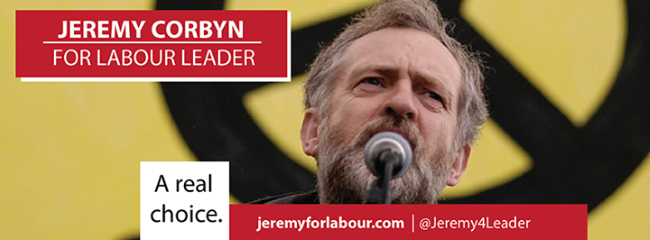While this looks like a technical spat over issues of macroeconomic monetary policy, with Chris Leslie, Labour’s stand in Shadow Chancellor arguing classical monetarist i.e. Thatcherite economics, its also about who benefits in terms of policy and for three people, about career advancement.
Leslie said: “Printing money and ending Bank of England independence would push up inflation, lending rates, squeeze out money for schools and hospitals and mean spending more on debt servicing. Higher inflation and a higher cost of living would hit those on the lowest incomes, the poorest people who couldn’t afford those goods and services. The very people we should be standing up for would pay the price – the poor and vulnerable.”
In an interview with The Independent, Mr Leslie issued a wake-up call to Labour members to reject what he called a “starry-eyed, hard left” economic strategy, amid growing signs that Mr Corbyn could pull off a shock victory next month. Notice – no model of cause… the huge discovery over the last seven years is that printing money doesn’t cause inflation and with interest rates at an all time historic low, now is the time to borrow long term to invest in the future. Leslie is as on most of his economics very wrong on this.
He got another bite of the cherry in the New Statesman, where he focuses on QE, and it’s consequent interest payments (there aren’t any) and the independence of the Bank of the Bank of England which for some reason he holds up as a great reform. There’s no doubt about it – the Labour Party has reached a fork in the road and on 12 September the fate of the progressive centre-left in Britain will be sealed. There are millions whose living standards and working conditions depend on Labour winning government in 2020 to fight for power, wealth and opportunity in the hands of the many not the few. The independence of the Bank and the foundation of the Office of Budget Responsibility are both anti-democratic reforms, reducing the power of the elected Chancellor and the House of Commons. The ideology behind these reforms is that these decisions are too important to be taken by politicians, and I’d like to remind Leslie of Mervyn King, the then Governor of the Bank’s behaviour in both 2008 and 2010.
Chris Dillow performs a technical analysis of the proposition, critically pointing out that with the current levels of unemployment and underemployment, it’s highly unlikely that anything would be inflationary. It’s widely agreed that Jeremy Corbyn’s popularity is due in large part to the mediocrity of the alternatives. As if to demonstrate this, Chris Leslie – Shadow Chancellor – claims that Corbynomics would be inflationary. This isn’t wholly unreasonable. A money-financed fiscal expansion – which is all “people’s QE” is – would increase employment and aggregate demand.
Richard Murphy, a Corbyn advisor and author of taxresearch.org.uk opposes Leslie in the most robust terms, in this press version of his radio interview, The author of the economic plan set out by Labour leadership contender Jeremy Corbyn has defended “Corbynomics” in the face of an attack by the shadow chancellor, Chris Leslie. Richard Murphy, the fair tax expert recruited by Corbyn to draft his economic policy, deepened divisions on the left by saying “Leslie has got this completely wrong.” The article states that when challenged on Leslie’s point about high inflation, Murphy said: “Any system of people’s QE would be turned off if we got to a situation of high wages and full employment, but we are so far from that at the moment that we have to tackle the low-wage economy and the lack of productivity in the UK by creating new investment, which is the foundation for new prosperity.”

I have heard Chris Leslie speak, and these issues are at the crux of the debate, but it still surprises me to find Labour people using the economics of the ’80s to understand today’s problems; this isn’t the first time he’s spoken this way. QE clearly doesn’t cause inflation, because we have one and not the other. He’s another of Harriet Harman’s partisan decisions taken as interim leader, the job’s beyond him, and he’ll be gone if they reintroduce elections to the shadow cabinet.
Finally if the choice of Shadow Chancellor is between Murphy, Leslie and Rachel Reeves, it’s just another reason for voting for Jeremy Corbyn.
Mind you, Murphy is not an MP and so cannot serve as Shadow Chancellor, Chief Commissioner of HMRC anyone?
ooOOOoo
This was originally published as a storify and reposted in Oct 2018 as this blog article. …








